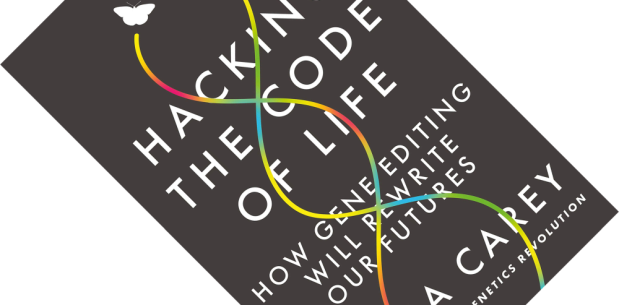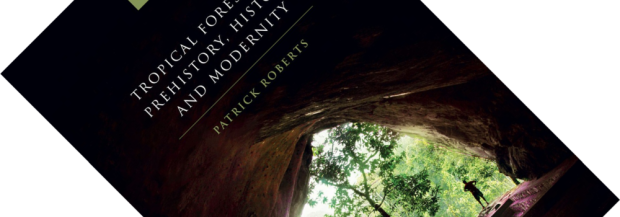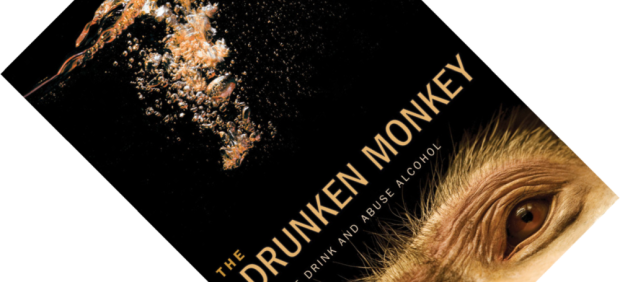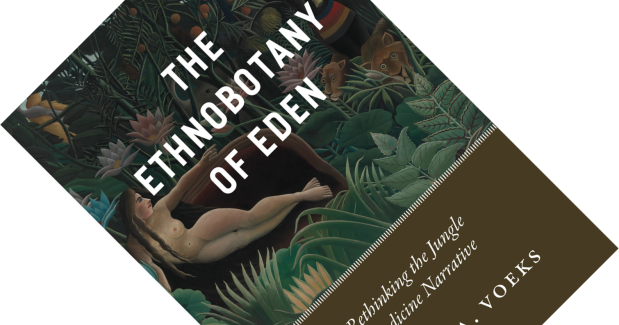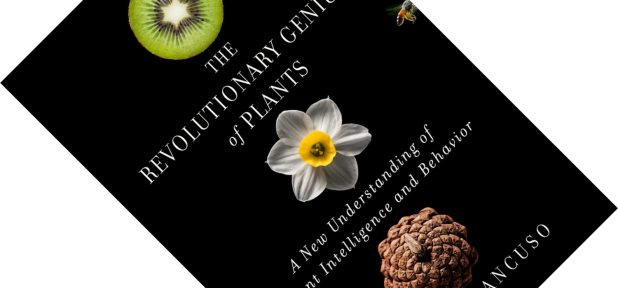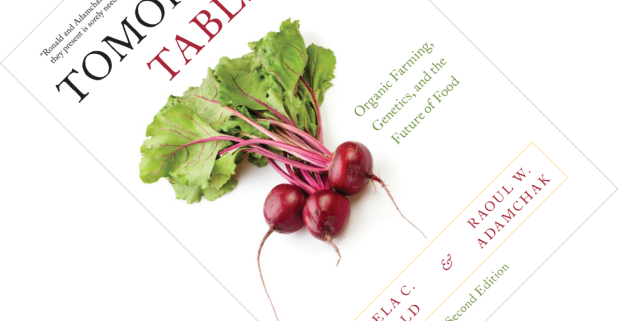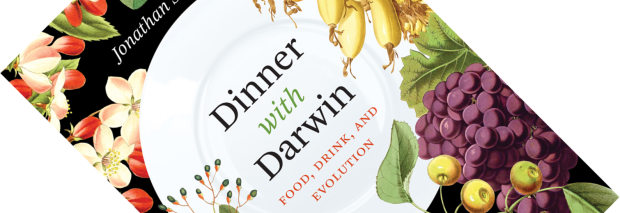Since being released on the world in 2012, the biotechnological tool CRISPR has been making headlines. Biologists used to rely on the relatively blunt tools of genetic modification, but this new tool is so precise and versatile that they now speak of gene editing instead. For people in a hurry, Nessa Carey here provides a primer on the powers and pitfalls of gene editing. Hacking the Code of Life is accessible to readers without much background in genetics, focusing more on the applications and the questions it raises than the nitty-gritty details of the tool itself.
plants
Book review – Carboniferous Giants and Mass Extinction: The Late Paleozoic Ice Age World
Not so long ago, the idea that giant reptiles once roamed the earth was novel, unbelievable to some, but their reign represents only one part of deep time. Go back further in time, to the Carboniferous (358.9 to 298.9 million years ago), and you will find a world of giants as bizarre and otherworldly as the dinosaurs must have once seemed to us. A world where clubmoss trees grew up to 50 metres tall, with scorpions as large as dogs and flying insects the size of seagulls. With Carboniferous Giants and Mass Extinction, palaeobiologist George McGhee, Jr. presents a scholarly but fascinating overview of the rise and fall of this lost world, and why it still matters to us.
Book review – Tropical Forests in Prehistory, History, and Modernity
Primaeval, pristine, playground of Indiana Jones, home to ancient ruins and primitive tribes – nothing says wilderness more than tropical rainforests. They have had a firm grip on our collective imagination for centuries as the antithesis of civilization. But after reading archaeologist Patrick Roberts’s Tropical Forests in Prehistory, History, and Modernity, it seems my introduction is a load of lyrical rubbish. Synthesizing an enormous body of scientific literature, this book dispels the Victorian-era explorer-mystique to reveal a picture that is far more fascinating.
Book review – The Drunken Monkey: Why We Drink and Abuse Alcohol
It is tempting to start this review with a nod to Monty Python’s Philosopher’s Drinking Song. But there is a dark side to our use and especially abuse of alcohol, lethal traffic accidents being just one of them. Why are we so enamoured with our booze? With The Drunken Monkey, Professor of Integrative Biology Robert Dudley puts forward the idea that it is linked to the dietary preferences of our primate ancestors who used alcohol as a cue to identify ripe fruit. Is this another evolutionary just-so story?
Book review – The Ethnobotany of Eden: Rethinking the Jungle Medicine Narrative
When I reviewed the book Defending Biodiversity: Environmental Science and Ethics, one of the reasons that was discussed as to why we should protect nature was the possibility of undiscovered pharmaceutical drugs. Seasoned ethnobotanist Robert A. Voeks shows that this so-called jungle medicine narrative has a long history. Though partially true, it equally contains parts myth, sentimentality, and nostalgia. However, if you are expecting a sceptical critique of superstitious indigenous practices – I was initially wondering whether the book would – no, this book delivers something far more interesting. Without belittling traditional knowledge, Voeks instead exposes the flaws in our interpretation and delivers a nuanced and fascinating ethnobotanical history lesson to boot.
Book review – The Revolutionary Genius of Plants: A New Understanding of Plant Intelligence and Behavior
In an earlier review, I said that botany was never my greatest love. With The Revolutionary Genius of Plants, Italian plant neurobiologist Stefano Mancuso does a very good job of changing my mind. In the preface, he implores readers to imagine what it is like to be a plant, unable to escape predators. How can you survive this onslaught? The answer: by becoming virtually indestructible. And the way plants do this is by having a body plan that is almost the inverse of animals. There was something so powerful about Mancuso’s writing here that he instantly drew me in.
Book review – Tomorrow’s Table: Organic Farming, Genetics, and the Future of Food (Second Edition)
Aaah, GMOs. Was there ever a topic comparable to genetically modified organisms that riled people on either side of the debate this much? Written by an organic farmer and plant geneticist, Tomorrow’s Table is a marvellous work that walks the middle road, asking: Why should we not combine the best that organic farming and genetic engineering have to offer? Along the way, it exposes the often illogical, contradictory and, frankly, infuriating attitudes and opinions of the anti-GMO movement, politely smothering them with facts, while also teaching the technology cheerleaders a lesson or two. I love this book.
Book review – Dinner with Darwin: Food, Drink, and Evolution
Who could refuse such an invitation to dinner? In fourteen short chapters, Dinner with Darwin provides a smörgåsbord of topics on the role of food in human evolution and vice versa, many of which have been covered here in recent reviews. This is Jonathan Silvertown’s fourth book with the University of Chicago Press, and based on this, I would love to read his other books as well. Care to join me at the table?
Book review – Land Bridges: Ancient Environments, Plant Migrations, and New World Connections
Before plate tectonics became an accepted idea in geology, Lyell’s doctrine of uniformitarianism still ruled supreme (see my review of Cataclysms: A New Geology for the Twenty-First Century for a short introduction). A corollary was that the continents supposedly had always been where they are now. One observation scholars had to explain away was that the same fossils occur on both sides of the various oceans. Looking at maps, some people noticed the thin strip of land connecting North and South America and concluded that land bridges must have formed and sunk beneath the waves at just the right times in history to enable migrations (see Four Revolutions in the Earth Sciences: From Heresy to Truth for more details). As explained in The Tectonic Plates are Moving!, we know better nowadays. Nevertheless, the concept of land bridges is still alive and well today, and palaeobotanist Alan Graham here introduces five of them, exploring their effects on biogeography, climate, and human history.
Book review – Buzz: The Nature and Necessity of Bees
Sure, I have been lectured about the birds and the bees, and yet I learned an awful lot more about the bees from Thor Hanson’s latest work Buzz: The Nature and Necessity of Bees. Hanson has previously written popular works about feathers and seeds, and in Buzz he turns his attention to bees. Already this book has garnered a lot of positive press and was Book of the Week on BBC Radio 4. Most people associate bees with honey and therefore with the honeybee, Apis mellifera, but Hanson specifically wants to talk about all the other thousands of bee species, many of which are as interesting and as important, even though some of them are diminutive and hardly noticed.

